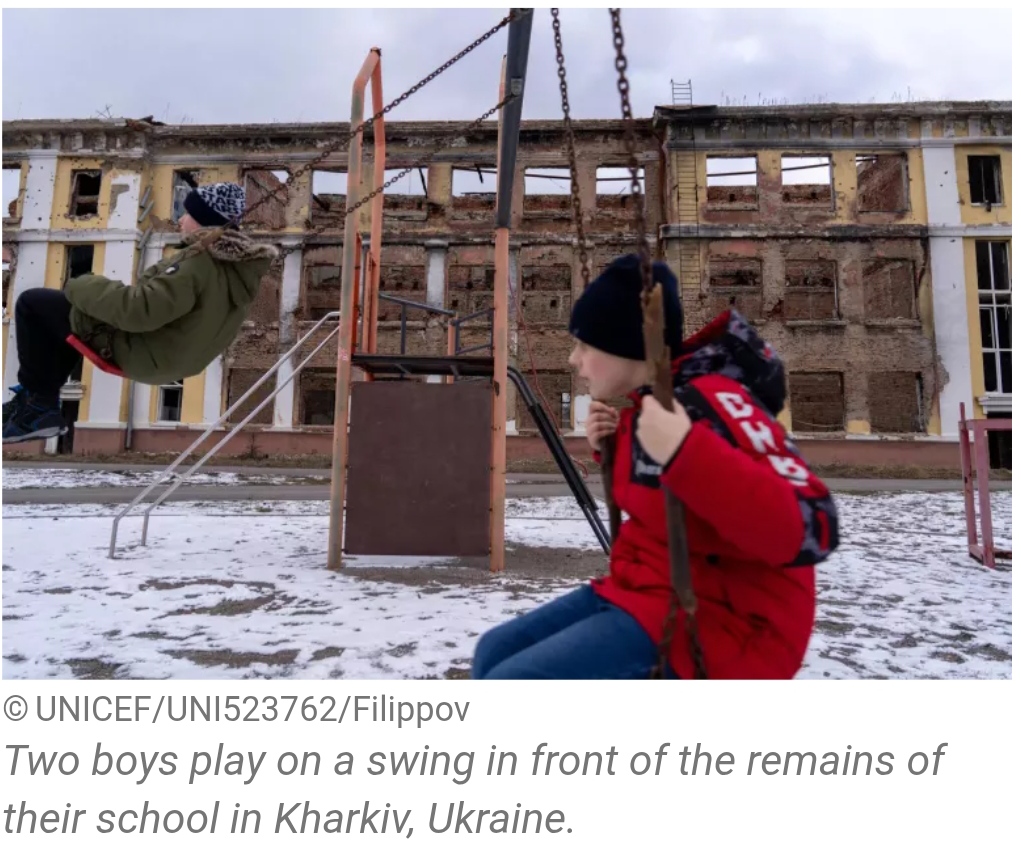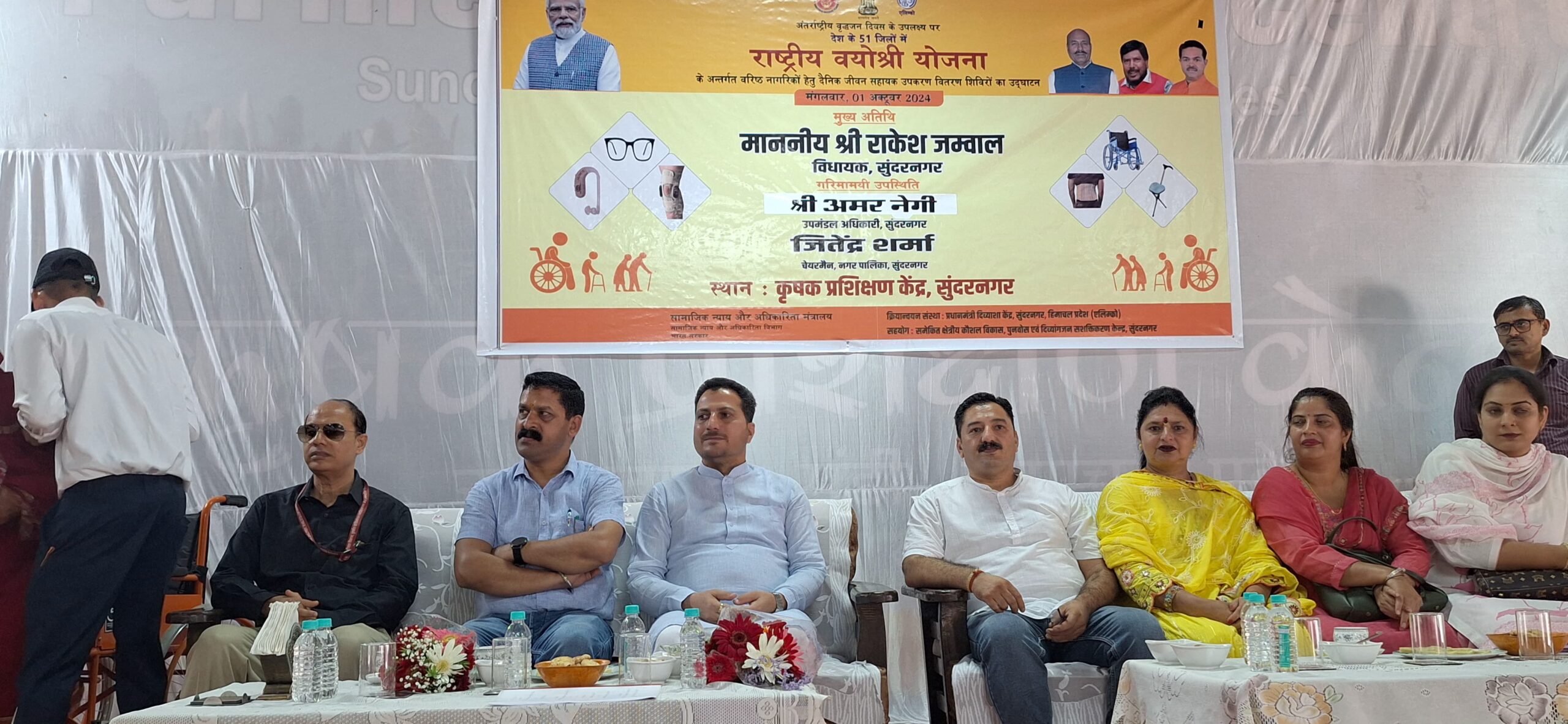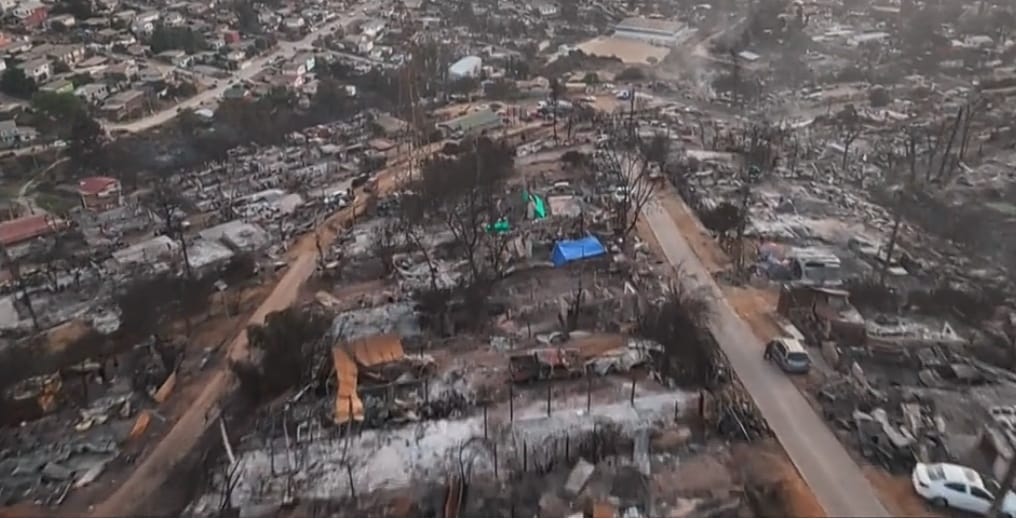UNICEF Reports Devastating Impact of War on Children in Ukraine: One in Five Children Has Lost a Loved One.
KYIV:
A new survey released by UNICEF recently reveals the profound impact of the ongoing war in Ukraine on children, with one in five reporting the loss of a close relative or friend since the conflict’s escalation three years ago.
In a statement, UNICEF Executive Director Catherine Russell emphasized the unrelenting toll the war has taken on Ukrainian children, saying, “For far too long, death and destruction have remained a constant in the lives of children in Ukraine. This level of violence causes immense fear and suffering and disrupts every aspect of a child’s life.”
The war, which entered its third year in 2024, proved to be even more deadly for children than the previous year, with child casualties rising by over 50 percent. Since the onset of full-scale conflict in February 2022, more than 2,520 children have been either killed or injured, although the true number is likely higher, as the figures reflect only those verified by the UN. In addition to the devastating loss of life, more than 1,600 educational institutions and nearly 790 health facilities have been damaged or destroyed during the conflict.
As children endure the violence and devastation, their mental and emotional well-being continues to deteriorate. Experiences during childhood play a critical role in shaping lifelong health and learning, yet the war has forced children as young as three to grow up amidst conflict. For many, this has meant disrupted access to essential services such as health care, education, and family support, leaving parents physically and emotionally drained.
The toll on adolescents is particularly severe, with nearly one-third of teenagers in Ukraine reporting feelings of sadness and hopelessness so intense that they have stopped engaging in daily activities. These feelings are more prevalent among girls, highlighting the heightened psychological strain on young people during this prolonged period of conflict.
Mental health challenges have been compounded by the isolation many children face, spending hours sheltering in basements away from their peers, missing out on socialization and learning. As of now, nearly 40 percent of Ukrainian children are studying exclusively online or through a hybrid of in-person and remote education, leading to a significant loss in educational progress. On average, children have lost about two years in reading and one year in mathematics.
UNICEF continues to provide critical assistance in Ukraine, working with local partners to offer life-saving support, including health care, safe water, cash assistance, education, and child protection services, particularly in frontline areas. Efforts to rehabilitate water and sanitation networks and ensure families have the necessary resources, like fuel and clothing for the harsh winters, remain a top priority.
Alongside immediate aid, UNICEF is working with the Ukrainian government and partners to rebuild and strengthen systems that support children’s recovery and long-term development, focusing on social cohesion and ensuring access to essential services like health care, education, and social protection.
For the millions of Ukrainian refugees, the situation remains dire. Currently, 6.86 million Ukrainian refugees have been registered globally, with nearly one million residing in Poland. The challenge for refugee children is access to education, as half of school-age children in host countries are not enrolled in national education systems, preventing them from developing the skills they need for a future free of conflict.
Russell concluded by reiterating the need for international support: “Children must always be protected from the impacts of war in accordance with international humanitarian and human rights law. More than anything, children in Ukraine need sustained peace, and the chance to realize their full potential.”
As the war continues, UNICEF’s work remains crucial to providing Ukrainian children with the support they need to survive and rebuild their futures.



